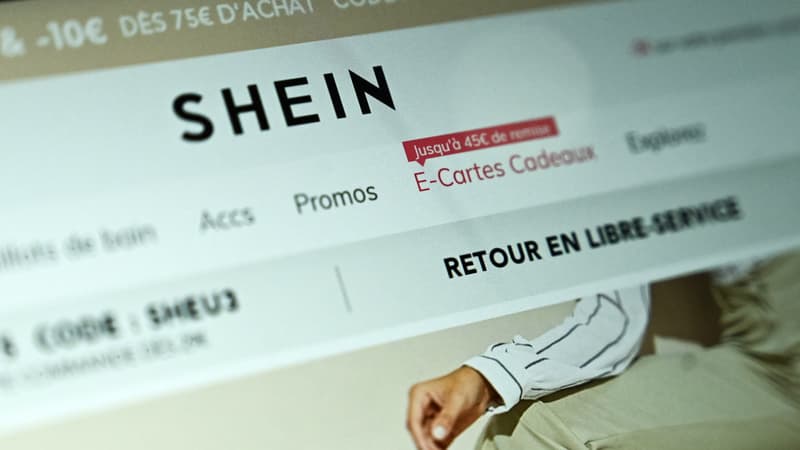“Making fashion accessible to all”: accused of forced labor, plagiarism, incitement to excessive consumption, the Chinese colossus of ready-to-wear at bargain prices SheIn, so far ineloquent, defends in an interview with AFP its business model, which has become the target of NGOs and public authorities.
Founded in 2008 in China and headquartered in Singapore, SheIn quickly conquered the global “fast fashion” market, based on rapidly renewing collections at very low prices, and only sells online, targeting a young clientele that drinks in social networks.
In 2021, its sales increased by 60%, boosting its turnover to $16 billion, according to Bloomberg, close on the heels of the Swedish H&M.
9000 employees
And SheIn, which currently employs 9,000 people worldwide, doesn’t plan to stop there.
“We are developing a localization strategy” that consists of “having teams in the countries where we do business,” explains Peter Pernot-Day, head of strategy and public affairs, in an interview with AFP.
The manager was in Paris for the opening of a pop-up store in the Parisian capital.
The development of the company is based on strong local teams but also on the construction of a 40,000 m2 warehouse in Poland, “and there will be others”, promises Peter Pernot-Day, “so that [ses] European customers have faster access to [ses] products”.
Another major area of development: the creation of a SheIn marketplace, which aims to be a “digital department store” focused on fashion and “lifestyle.”
“Efficiency” of the model
However, producing more and more is precisely what they are accused of by associations and public authorities, who denounce or try to contain the expansion of the Chinese giant.
“We are manufacturers on demand”, replies Peter Pernot-Day, “capable of measuring (it) very finely”, which makes it possible to “drastically” reduce unsold items and, therefore, the production of waste.
And these t-shirts at 4.99 euros, a price that is not compatible with decent working conditions for NGOs? It all depends on the “efficiency” of the model: “Our costs are low because the price of a garment is weighed down by the risk cost of unsold items that must be integrated” and inventory management, which SheIn complains about, responds manager. .
“Our goal is to make the beauty of fashion accessible to everyone,” she says.
Second-hand platform in the United States, new materials research laboratory, integration of recycled materials, SheIn is making efforts. But when she is asked about the lack of information available online for consumers about these clothes made from recycled material, Peter Pernot-Day admits that “the question is relevant” and that “he will return it to the teams”.
“Let’s accomplish”
So how can you be sure that SheIn complies with traceability standards? The manager explains that SheIn “is very technologically connected” with its suppliers.
SheIn indicates that it has sent the list of prohibited substances to the latter (the brand has already been specified by the French Suppression of Fraud on this subject), that it has carried out up to 300,000 chemical tests in 2023 and uses the services of Oritain , a company of analysis of products with which the American government also works. “We are ten years old, we are still learning,” she defends herself.
“Our challenge is that we have many products, many suppliers,” admits Peter Pernot-Day, who reaffirms that SheIn “does not have suppliers in the Xinjiang region” (northwest China), where the associations accuse it of resorting to forced labor. of the Uyghurs.
A group of US parliamentarians have just asked the Wall Street Police to demand an independent investigation into the work of the Uyghurs against various groups, including SheIn.
“We use a kind of blacklist published by the US government” to check the integrity of the partners, says Peter Pernot-Day.
What about plagiarism? “In the event of a complaint, if it is proven, the product is withdrawn,” says the manager, who stresses that intellectual property is “a difficult legal issue” and that he notes “a reduction in the number of complaints.”
Invariably associated with China, is SheIn afraid of being the new Tik-Tok? “We are a Singapore-based company,” replies Peter Pernot-Day.
Source: BFM TV


